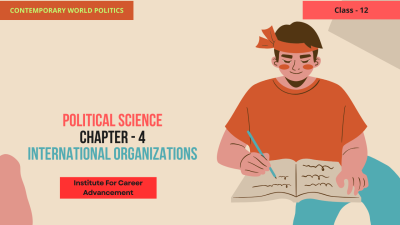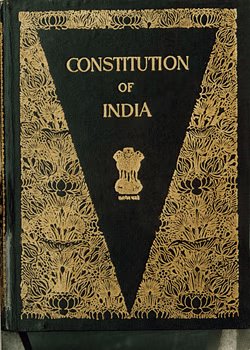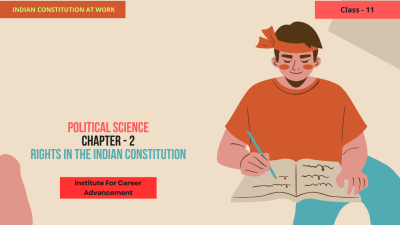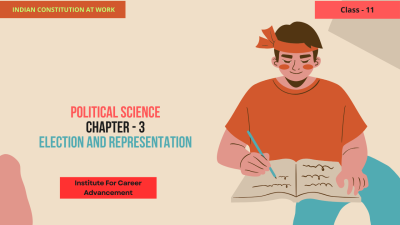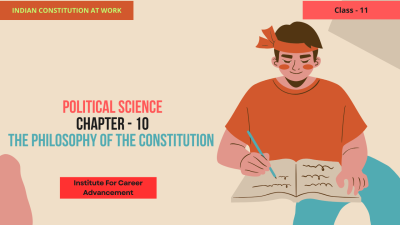International Organizations - Class 12
International Organizations are institutions established by states to address common goals and challenges. They play a crucial role in promoting cooperation, resolving conflicts, and addressing global issues. Types of International Organizations: Intergovernmental Organizations (IGOs): Established by states through treaties or agreements. Examples include the United Nations (UN), the World Trade Organization (WTO), the International Monetary Fund (IMF), and the North Atlantic Treaty Organization (NATO). International Non-Governmental Organizations (INGOs): Established by individuals or groups, independent of governments. Examples include the International Committee of the Red Cross (ICRC), Amnesty International, and Greenpeace. Functions of International Organizations: Promoting cooperation: Fostering cooperation among states on various issues, such as trade, security, and human rights. Resolving conflicts: Mediating disputes and promoting peaceful resolution of conflicts. Addressing global challenges: Tackling global issues such as climate change, poverty, and inequality. Providing public services: Delivering essential services, such as humanitarian aid, education, and healthcare. Setting international standards: Establishing international standards and norms in areas such as trade, human rights, and environmental protection. Importance of International Organizations: Global governance: International organizations play a crucial role in global governance, providing a forum for cooperation and decision-making. Addressing global challenges: They help to address global challenges that cannot be effectively addressed by individual states. Promoting peace and security: International organizations contribute to promoting peace and security by preventing conflicts and resolving disputes. Economic development: They promote economic development and cooperation among countries. Human rights: They protect and promote human rights worldwide. Challenges facing International Organizations: Sovereignty: Balancing the interests of individual states with the need for international cooperation. Effectiveness: Ensuring the effectiveness and accountability of international organizations. Funding: Securing adequate funding for the operations of international organizations. Legitimacy: Maintaining the legitimacy and authority of international organizations. International Organizations are essential for addressing the complex challenges of the 21st century. They play a vital role in promoting peace, security, and development on a global scale. আন্তর্জাতিক সংস্থাগুলি হল সাধারণ লক্ষ্য এবং চ্যালেঞ্জগুলি মোকাবেলার জন্য রাষ্ট্র দ্বারা প্রতিষ্ঠিত প্রতিষ্ঠান। তারা সহযোগিতা বৃদ্ধি, দ্বন্দ্ব সমাধান এবং বৈশ্বিক সমস্যা সমাধানে গুরুত্বপূর্ণ ভূমিকা পালন করে। আন্তর্জাতিক সংগঠনের প্রকারঃ আন্তঃসরকার সংস্থা (আইজিও) চুক্তি বা চুক্তির মাধ্যমে রাষ্ট্র দ্বারা প্রতিষ্ঠিত। উদাহরণগুলির মধ্যে রয়েছে জাতিসংঘ (ইউএন), বিশ্ব বাণিজ্য সংস্থা (ডব্লিউটিও), আন্তর্জাতিক মুদ্রা তহবিল (আইএমএফ) এবং উত্তর আটলান্টিক চুক্তি সংস্থা (ন্যাটো)। আন্তর্জাতিক বেসরকারী সংস্থা (আই. এন. জি. ও) সরকার থেকে স্বাধীন ব্যক্তি বা গোষ্ঠী দ্বারা প্রতিষ্ঠিত। উদাহরণের মধ্যে রয়েছে ইন্টারন্যাশনাল কমিটি অফ দ্য রেড ক্রস (আই. সি. আর. সি) অ্যামনেস্টি ইন্টারন্যাশনাল এবং গ্রিনপিস। আন্তর্জাতিক সংস্থাগুলির কার্যাবলীঃ সহযোগিতা বৃদ্ধিঃ বাণিজ্য, নিরাপত্তা এবং মানবাধিকারের মতো বিভিন্ন বিষয়ে রাষ্ট্রগুলির মধ্যে সহযোগিতা বৃদ্ধি করা। দ্বন্দ্ব সমাধানঃ বিরোধের মধ্যস্থতা করা এবং দ্বন্দ্বের শান্তিপূর্ণ সমাধানের প্রচার করা। বৈশ্বিক চ্যালেঞ্জ মোকাবেলাঃ জলবায়ু পরিবর্তন, দারিদ্র্য এবং বৈষম্যের মতো বৈশ্বিক সমস্যা মোকাবেলা করা। জনসেবা প্রদানঃ মানবিক সহায়তা, শিক্ষা এবং স্বাস্থ্যসেবার মতো প্রয়োজনীয় পরিষেবা প্রদান করা। আন্তর্জাতিক মান নির্ধারণঃ বাণিজ্য, মানবাধিকার এবং পরিবেশ সুরক্ষার মতো ক্ষেত্রে আন্তর্জাতিক মান এবং নিয়ম প্রতিষ্ঠা করা। আন্তর্জাতিক সংগঠনগুলির গুরুত্বঃ বৈশ্বিক শাসনঃ আন্তর্জাতিক সংস্থাগুলি বৈশ্বিক প্রশাসনে গুরুত্বপূর্ণ ভূমিকা পালন করে, সহযোগিতা ও সিদ্ধান্ত গ্রহণের জন্য একটি ফোরাম প্রদান করে। বৈশ্বিক চ্যালেঞ্জ মোকাবেলাঃ এগুলি বৈশ্বিক চ্যালেঞ্জ মোকাবেলায় সহায়তা করে যা পৃথক রাষ্ট্র দ্বারা কার্যকরভাবে মোকাবেলা করা যায় না। শান্তি ও নিরাপত্তা বৃদ্ধিঃ আন্তর্জাতিক সংস্থাগুলি দ্বন্দ্ব প্রতিরোধ এবং বিরোধ নিষ্পত্তি করে শান্তি ও নিরাপত্তা বৃদ্ধিতে অবদান রাখে। অর্থনৈতিক উন্নয়নঃ এগুলি দেশগুলির মধ্যে অর্থনৈতিক উন্নয়ন এবং সহযোগিতা বৃদ্ধি করে। মানবাধিকারঃ তারা বিশ্বব্যাপী মানবাধিকার রক্ষা করে এবং প্রচার করে। আন্তর্জাতিক সংস্থাগুলির সামনে চ্যালেঞ্জঃ সার্বভৌমত্বঃ আন্তর্জাতিক সহযোগিতার প্রয়োজনীয়তার সাথে পৃথক রাষ্ট্রের স্বার্থের ভারসাম্য বজায় রাখা। কার্যকারিতাঃ আন্তর্জাতিক সংস্থাগুলির কার্যকারিতা এবং জবাবদিহিতা নিশ্চিত করা। অর্থায়নঃ আন্তর্জাতিক সংস্থাগুলির কার্যক্রম পরিচালনার জন্য পর্যাপ্ত অর্থায়ন নিশ্চিত করা। বৈধতা-আন্তর্জাতিক সংস্থাগুলির বৈধতা এবং কর্তৃত্ব বজায় রাখা। একবিংশ শতাব্দীর জটিল চ্যালেঞ্জগুলির মোকাবিলা করার জন্য আন্তর্জাতিক সংস্থাগুলি অপরিহার্য। তারা বিশ্বব্যাপী শান্তি, নিরাপত্তা এবং উন্নয়নের প্রসারে গুরুত্বপূর্ণ ভূমিকা পালন করে।
English
Last updated
Wed, 27-Nov-2024

